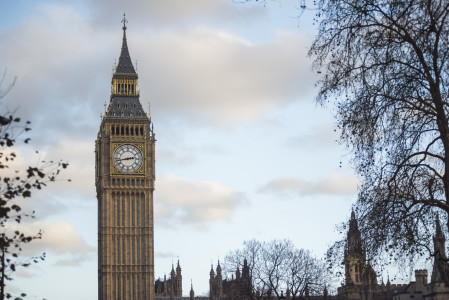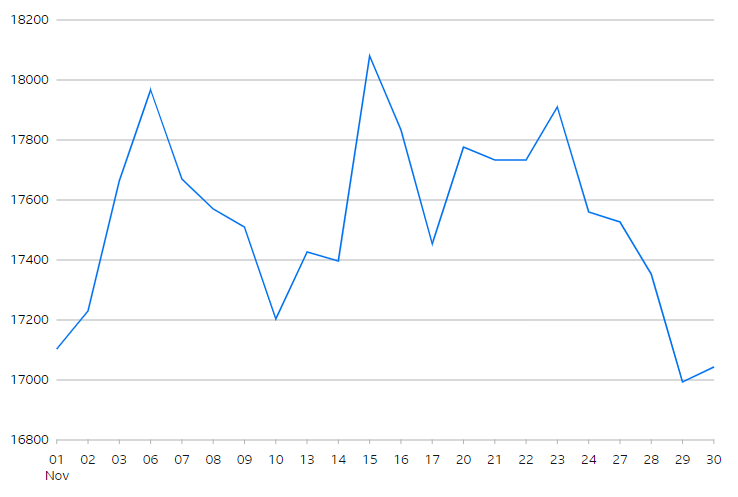
This is part of our monthly pension update series. Catch up on last month’s summary here: What happened to pensions in October 2023?
In November 2023, the UK government unveiled its Autumn Statement, outlining its plans for the nation’s financial future. In his address to Parliament, the Chancellor; Jeremy Hunt, acknowledged the challenges posed by the current economic climate.
When it came to pensions, the spotlight was firmly on the triple lock policy. The triple lock is a rule that ties the increase in the State Pension to the highest of:
- inflation;
- average earnings growth; or
- 2.5%.
Critics, including The Organisation for Economic Co-operation and Development, had been worried that the triple lock was too expensive and that the government should reconsider its approach. But, the government decided to keep the triple lock in place, meaning that the new State Pension will increase by 8.5% in April 2024.
From a new ‘pension pot for life’ concept to boosting the new State Pension, there were many policy changes announced. Keep reading to learn what the 2023 Autumn Statement means for the future of pensions, but first find out how markets have performed this month.
What happened to stock markets?
In UK stock markets, the FTSE 250 Index rose by almost 7% in November. This brings the year-to-date performance close to -3%.
 Source: BBC Market Data
Source: BBC Market Data
In European stock markets, the EuroStoxx 50 Index rose by almost 8% in November. This brings the year-to-date performance close to +16%.
 Source: BBC Market Data
Source: BBC Market Data
In US stock markets, the S&P 500 Index rose by almost 9% in November. This brings the year-to-date performance close to +19%.
 Source: BBC Market Data
Source: BBC Market Data
In Asian stock markets, the Hang Seng Index remained flat in November. This brings the year-to-date performance close to -14%.
 Source: BBC Market Data
Source: BBC Market Data
What impact will the 2023 Autumn Statement have?
There are two key areas the Chancellor targeted in his Autumn Statement: National Insurance and pensions. Here’s a summary of those incoming changes.
How are pensions changing?
The triple lock on the State Pension will be maintained for 2024, resulting in a full new State Pension of £11,502.40. In a move that will bring relief to millions of pensioners, the government has confirmed that the triple lock will be maintained for the 2024/25 tax year. Concerns had been raised that the government might consider modifying the triple lock, given the recent decline in inflation to 4.6% in October 2023.
A single pension pot for life is in the works. In a bid to streamline the complex pension landscape, the government is exploring the concept of ‘one pension pot for life’. This initiative aims to address the issue of individuals accumulating multiple workplace pensions throughout their careers. Under the proposed scheme, employees would have the freedom to choose where their Auto-Enrolment pension contributions are directed in each new job.
Plans to tax inherited pensions have been abandoned. In a significant policy shift, the government has decided to abandon its proposed tax on inherited pensions - a move that will bring relief to many families across the UK. The planned tax, which was due to take effect in April 2024, would have subjected inherited pensions to income tax if the deceased passed away before reaching the age of 75.
How is National Insurance changing?
On the tax front, the Chancellor announced a reduction in the main rate of National Insurance contributions, providing a much-needed boost to take-home pay for many employees and self-employed individuals.
Abolishing Class 2 National Insurance: Self-employed individuals earning more than £12,570 currently pay a flat-rate compulsory charge of £3.45 per week through Class 2 National Insurance. This charge will be eliminated from April 2024, resulting in annual savings of £179.40 for self-employed people.
Reducing Class 4 National Insurance rate: The Class 4 National Insurance contribution rate for earnings between £12,570 and £50,270 will be reduced from 9% to 8% from April 2024. This translates to potential savings of up to £377 per year for self-employed people.
Slashing Class 1 Employee National Insurance rate: Employees will witness a drop in their Class 1 National Insurance rate from 12% to 10% on earnings between £12,570 and £50,270, effective January 2024. This translates to annual savings of £449 for individuals earning an average salary of £35,000, and savings of up to £754 for those earning £50,270 or more.
In a significant boost for workers across the UK, the minimum wage rate is set to increase by almost 10% from the current £10.42 to £11.44 from April 2024. This welcome change will not only enhance take-home pay but also contribute to long-term financial security through increased pension contributions via Auto-Enrolment.
In summary
The Autumn Statement brought positive changes for workers and pensioners, including reduced National Insurance contributions, a higher State Pension, and a plan for a single pension pot for life. But whether these changes will endure remains uncertain due to the upcoming General Election expected in 2024.
This is part of our monthly pension update series. Check out the next month’s summary here: What happened to pensions in December 2023?
Have a question? Get in touch!
You can check out our Plans page to learn how your money is invested in different assets and locations. You can always send comments and questions to our team via engagement@pensionbee.com.
Risk warning
As always with investments, your capital is at risk. The value of your investment can go down as well as up, and you may get back less than you invest. This information should not be regarded as financial advice.




